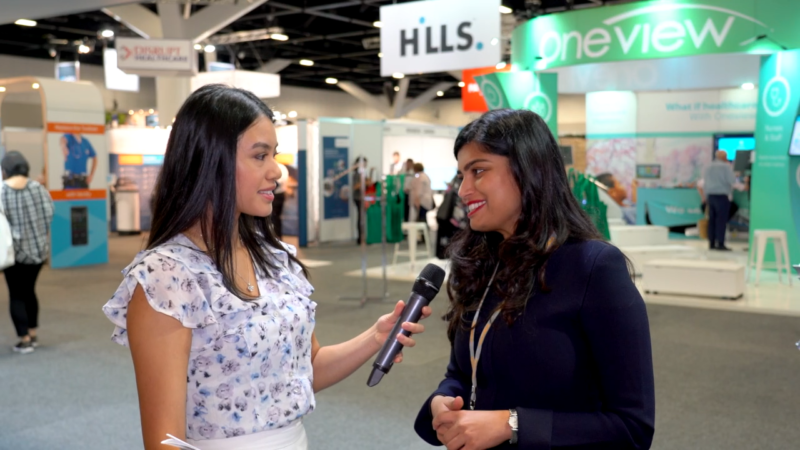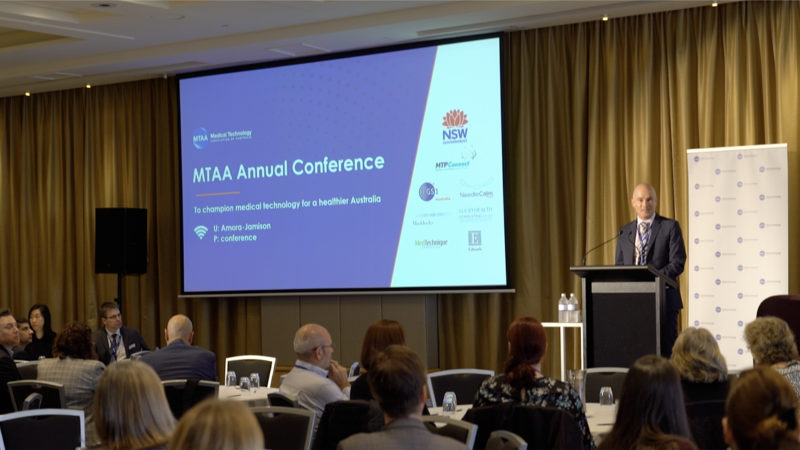In Australia in the last five years, an estimated 6066 women per year have undergone hysterectomies to treat fibroid-related diseases, while just 145 women each year have undergone a uterine artery embolisation, or UAE.
The procedure can effectively treat the majority of bleeding uterine fibroids. Each year, thousands of Australian women undergo invasive and life-altering hysterectomies to treat debilitating pain and blood loss caused by uterine fibroids. But there’s another option: a minimally invasive, pin-hole procedure that treats the symptoms, yet leaves the uterus intact.
Professor Warren Clements, interventional radiologist and head of the UAE service at The Alfred, said despite the proven safety and efficacy of the procedure – which was developed in the 1990s – it is simply not provided as an option to many women, something he urgently wants to change.
“Fibroids are highly prevalent in society and women need access to a range of different treatments so that they can choose what is the best for them,” Prof Clements said in an interview with Australian Health Journal.
“Every year, many women have a hysterectomy who would be suitable for a non-surgical alternative. UAE is an amazing non-surgical treatment and allows women to keep their uterus if they want to.”
The procedure is all done through a single pinhole incision, whereas a hysterectomy requires open surgery. It involves using low-dose x-rays and contrast dye to guide catheters through the arteries towards fibroids in the uterus. A medication is used to block the blood supply to the fibroids, which causes them to shrink. The procedure takes about half an hour, is done under ‘twilight’ sedation, and only requires one overnight recovery stay.
”Many women aren’t aware that this is a very minor procedure compared to hysterectomy,” Prof Clements said. “Women can resume normal activities the following day. The recovery is short, and most women can go back to work within a week. More than 90 per cent of women with heavy periods will have significant improvement in their symptoms after UAE.”
Professor Warren Clements, is also Honorary Researcher – Interventional Radiology, National Trauma Research Institute, Professor, Interventional Radiologist (IR) and the Head of Fluoroscopy in the Department of Radiology at Alfred Health. He is also a Fellow of the Royal Australian and New Zealand College of Radiologists (RANZCR).
Credit: Alfred Health
You Might also like
-
Dr Anjali Jaiprakash, Robobiologist from Queensland University of Technology
Dr Anjali Jaiprakash is a robobiologist working at the intersection of medicine, engineering and design, with a transdisciplinary approach to develop medical devices that translate robotic vision into affordable systems that can be used to improve healthcare outcomes. Anjali has experience in the fields of medical robotics, medical device, orthopaedics, trauma, bone and cartilage biology. She spoke with Anne Dao following her talk “The Robot Doctor Will See you Now” at Australian Healthcare Week 2019.
Post Views:
1,018 -
MTAA MedTech19 Annual Conference
MTAA’s annual conference is the premier medical technology industry conference in Australia and brings together leaders and influencers across industry, government and academia to discuss what’s up ahead for the MedTech industry.
-
Nursing Now Australia Launches
The evening of Tuesday 9th April saw the launch of Nursing Now Australia in Sydney, with Lord Nigel Crisp, Co-Chair of Nursing Now.
Professor Christine Duffield FACN, President of Australian College of Nursing welcomed the start of the campaign and explained the relevance to Australian Nurses.



